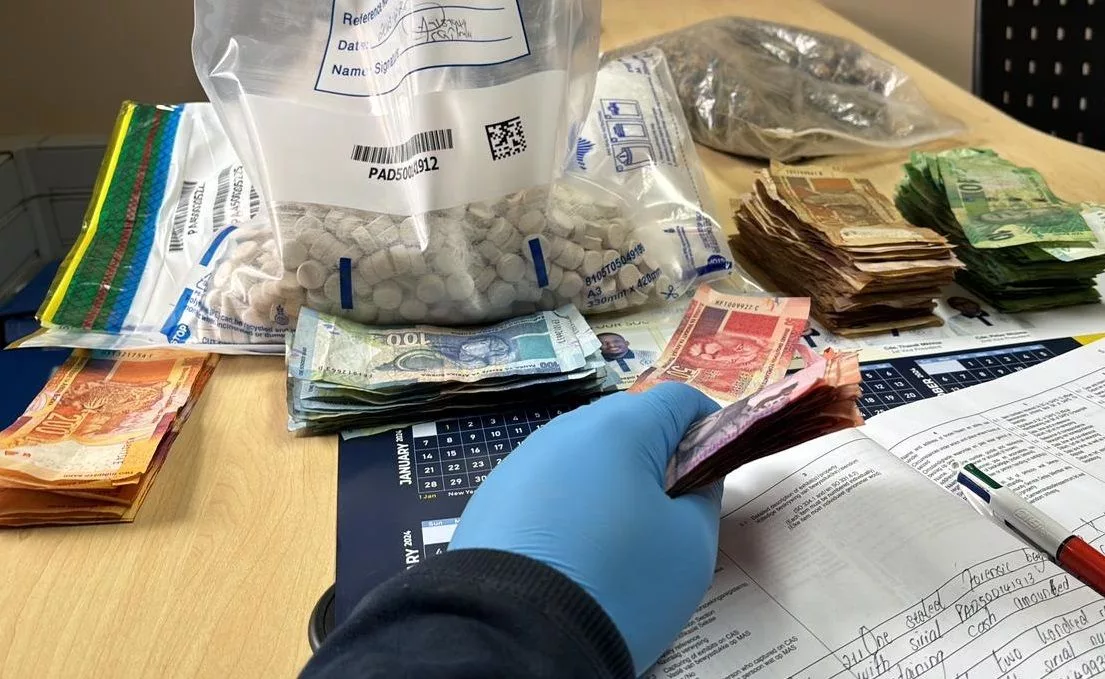The South African Police Service (SAPS) has denied rumors of a murder case at the Bradford Taxi Rank in Mahikeng on December 26, 2023. The SAPS urges the community to avoid spreading unverified content that can cause panic and damage the credibility of law enforcement officers. The spread of false information can have negative consequences, including public unrest and obstruction of justice, highlighting the need for responsible digital citizenship and accountability.
Debunking Falsehoods: South African Police Refutes Unfounded Claims
Contrary to rumors circulating on social media, the South African Police Service (SAPS) in the North West Province and the Ngaka Modiri Molema District deny any truth to the alleged murder case that supposedly took place at the Bradford Taxi Rank on December 26, 2023. The SAPS urges the community to refrain from spreading unverified content that can cause undue panic and undermine the credibility of law enforcement officers.
In recent times, the South African Police Service (SAPS) in the North West Province and the Ngaka Modiri Molema District have found themselves in the stormy midst of groundless allegations circulating through the currents of social media. A frightful post, ominously labelled “A Tragic Incident at Mahikeng Taxi Rank Claims the Life of a Child as a Family Falls Victim to Robbers,” has been making waves. This dark tale supposedly unfolded on the day following Christmas in 2023, within the bustling confines of Bradford Taxi Rank in Mahikeng.
Contrary to the circulating rumors, the relevant authorities strongly reject the truthfulness of these claims. As part of their efforts to ease public apprehension and correct the increasing misconceptions, the SAPS provincial management has unequivocally denied the allegations. In the simplest terms, no such murder case, allegedly taking place at the Bradford Taxi Rank, has ever been filed at the Mahikeng police station.
The Effects of Disinformation and the Call for Responsibility
The spread of such baseless and potentially damaging information can cultivate a climate of tension and unease. Consequently, the community is strongly urged to refrain from further spreading misleading and unverified content. It not only incites undue panic but also undermines the reputation and credibility of the devoted law enforcement officers.
In today’s world marked by rampant information exchange, it’s vital to bear in mind the possible outcomes of spreading unverified stories. An innocuous share on social media can escalate into a significant problem, causing unnecessary stress and confusion among the public.
The SAPS management has expressed a firm stance against the dissemination of false information. They caution that they will not hesitate to take harsh actions against those found culpable of intentionally spreading distorted narratives, as witnessed in the recent episode.
The Consequences of False Information and the Need for Due Diligence
It is crucial to note that the spread of false information is not a harmless act. It can result in a range of negative repercussions, including public unrest, defamation, and obstruction of justice. To maintain a sense of order and faith in the institution, it is vital for each citizen to exercise caution and responsibility when sharing information.
In conclusion, the SAPS’s position against the dissemination of false information is an admirable action, indicative of their dedication to uphold the truth and preserve public order. It serves as a reminder that in the information age, ascertaining the authenticity of the content we share is more than just a suggestion; it is an obligation. It is a call for each of us to be more judicious, more accountable, and more respectful of the truth.
A Call for Responsible Digital Citizenship
As we continue to depend heavily on digital platforms for information, it is essential to do so responsibly. Before pressing that share button, take a moment to contemplate the potential ramifications. Is the source trustworthy? Is the information confirmed? The responses to these inquiries can make a substantial difference in the digital realm we inhabit.
In the grand scheme of things, the impact of spreading false information on social platforms is a societal issue. Therefore, it calls for a collective response. Being mindful of what we share and taking the time to verify the authenticity of a piece of information not only protects us as individuals but also contributes to the overall health of our digital society. It’s a small step that goes a long way in promoting responsibility in our digital activities.
What were the rumors about that the SAPS denied?
The South African Police Service (SAPS) denied rumors of a murder case at the Bradford Taxi Rank in Mahikeng on December 26, 2023.
Why does the SAPS urge the community to avoid spreading unverified content?
The SAPS urges the community to avoid spreading unverified content that can cause panic and damage the credibility of law enforcement officers, highlighting the need for responsible digital citizenship and accountability.
What are the consequences of spreading false information?
The consequences of spreading false information can include public unrest, defamation, and obstruction of justice, among others.
What is the SAPS’s position on the dissemination of false information?
The SAPS management has expressed a firm stance against the dissemination of false information and warns that they will take harsh actions against those found culpable of intentionally spreading distorted narratives.
What is the need for due diligence in today’s world?
In today’s world, marked by rampant information exchange, it’s vital to exercise caution and responsibility when sharing information. False information can escalate into a significant problem, causing unnecessary stress and confusion among the public.
Why is responsible digital citizenship important?
Being mindful of what we share and taking the time to verify the authenticity of information not only protects us as individuals but also contributes to the overall health of our digital society. It promotes responsibility in our digital activities and protects the credibility of law enforcement officers.












